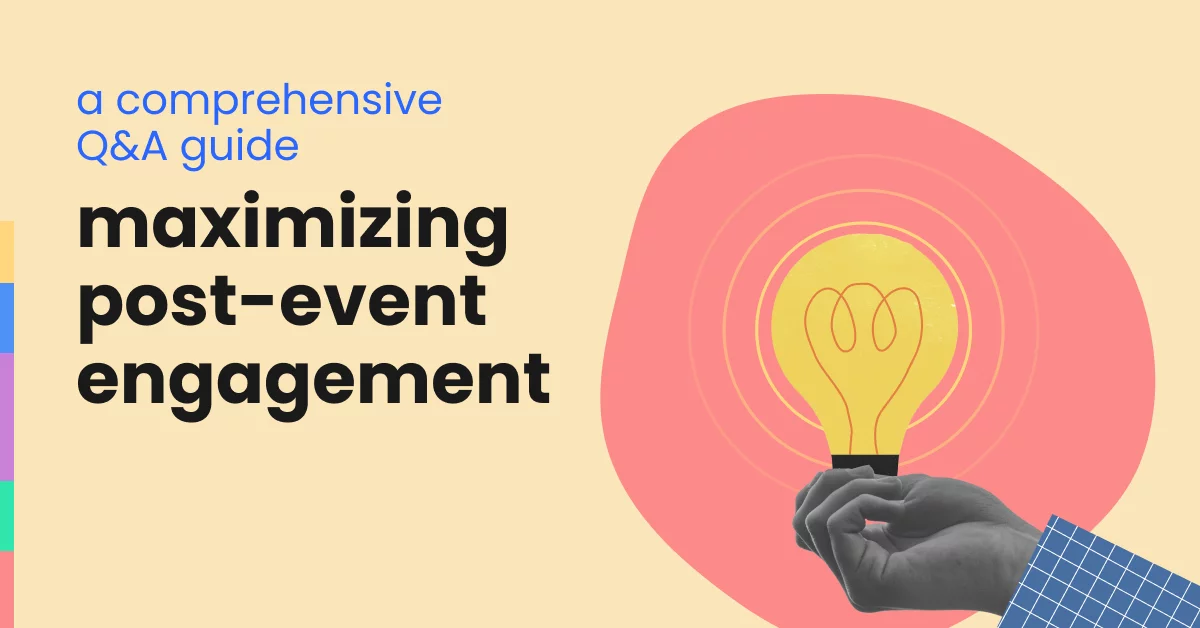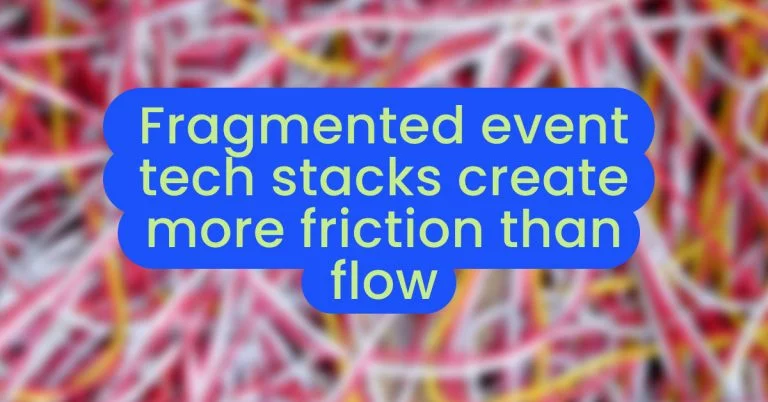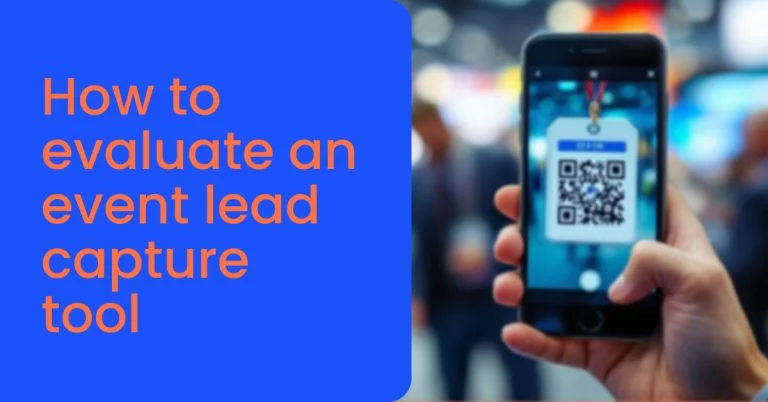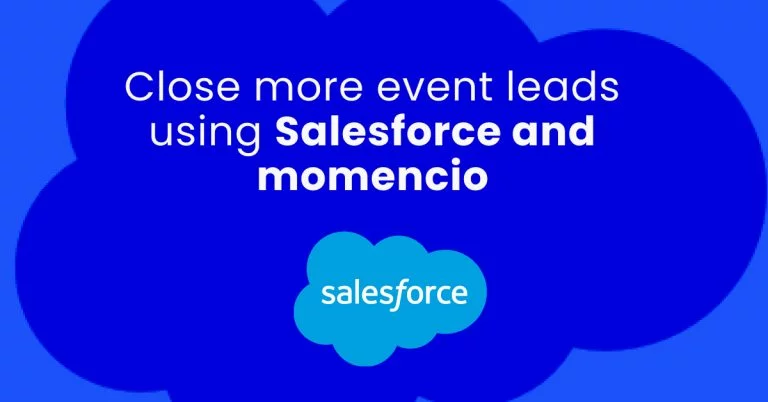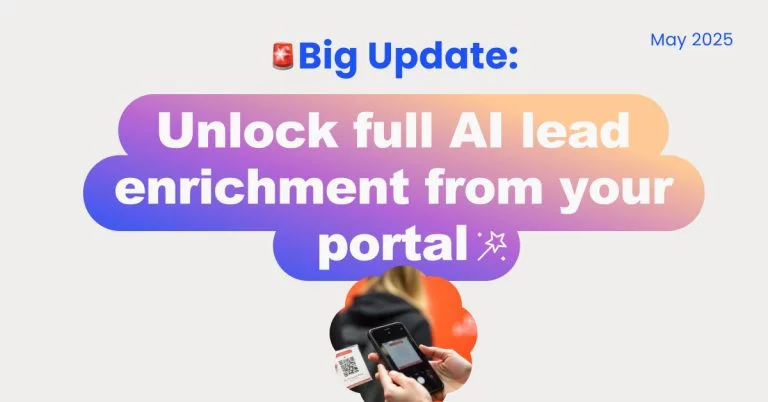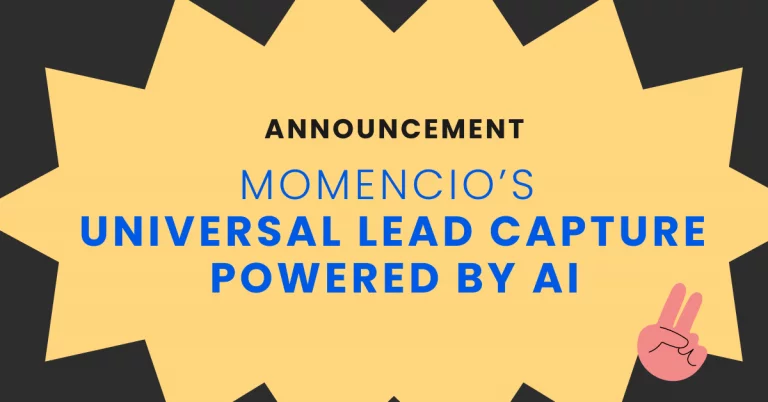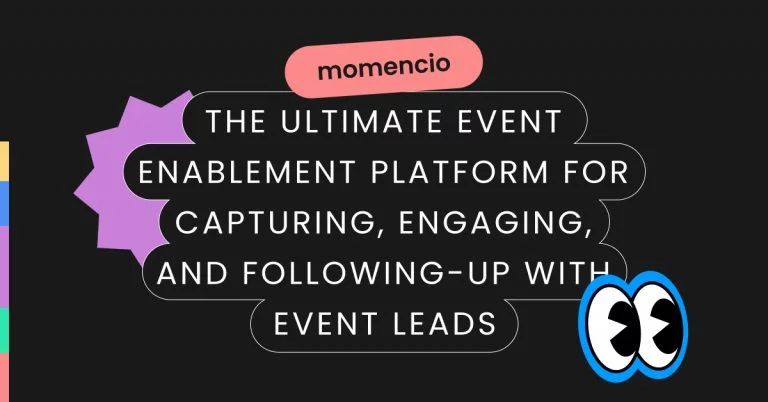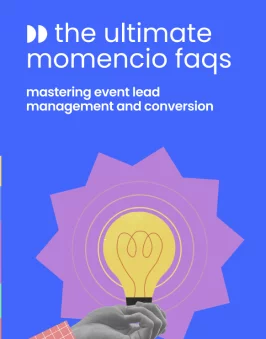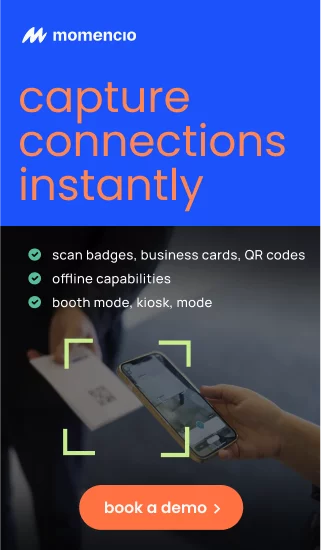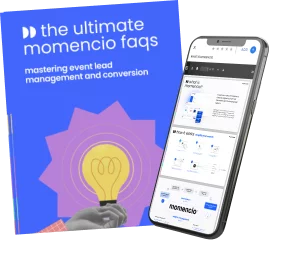Introduction
In the dynamic world of event management, the echo of an event’s conclusion signals not an end but the beginning of a critical phase that bridges past achievements with future opportunities. This juncture, known as post-event engagement, marks a pivotal period where the interactions cultivated during an event are nurtured into lasting connections. This guide unravels the intricacies of post-event engagement, providing a roadmap for sustaining momentum, fostering relationships, and leveraging the wealth of opportunities that lie in the aftermath of an event.
Table of Questions
What is post-event engagement?
What are the 3 post-event activities?
How do you engage attendees after an event?
How do you post after an event?
What are post-event activities?
What is post engagement vs. page engagement?
What is a post-event meeting called?
What is the post-event phase?
Why are post-meeting activities important?
How do you track post-engagement?
Which is better: post engagement or reach?
What is the difference between post-engagement and event response?
What is the purpose of the post-event meeting?
What is post-engagement in marketing?
What is a post-event description?
What is a post-event debrief?
What are the 5 P’s of event planning?
What are the 3 C’s of event management?
How do you do a debrief after an event?
What is post-event reporting?
Why is it important to debrief after an event?
What are the 5 C’s of an event?
What is the event triangle?
What are the six A’s of event planning?
How do you nurture leads after an event?
Why is event engagement critical?
What is post-event evaluation?
How often should you post about an event?
Why is post-event marketing important?
What are lead nurturing tactics?
What are the five purposes of engagement?
What are the three purposes of engagement?
Why is critical engagement meaningful?
How to do post-event analysis?
What does post-event mean?
How do you conduct a post-event review?
What is Post-Event Engagement?
Post-event engagement embodies the strategies and initiatives undertaken to maintain and elevate the dialogue with attendees after an event has wrapped up. It represents a concerted effort to transform ephemeral event encounters into enduring relationships and insights. Through targeted communication, content dissemination, and community engagement, post-event strategies seek to reinforce the event’s value, catalyze community building and set the stage for ongoing interaction. This continuous engagement is pivotal in maximizing the return on investment (ROI) of events by ensuring that the connections made are not only preserved but also cultivated for future growth.
The Three Pillars of Post-Event Activities
The framework of post-event activities rests on three fundamental pillars that guide the engagement strategy:
- Communication: A cornerstone of post-event engagement, effective communication involves reaching out to attendees with personalized follow-up emails, thank-you messages, and feedback surveys. These touchpoints serve to express gratitude, solicit valuable insights, and underscore the attendee’s importance to the organization.
- Content Sharing: The distribution of event recordings, presentations, and additional resources plays a crucial role in extending the event’s lifecycle. By providing access to these materials, organizations can offer continuous learning opportunities, reinforce key messages, and engage attendees who may have missed specific segments of the event.
- Community Building: Engaging with attendees on social media, forums, and dedicated event platforms fosters a sense of belonging and community. This engagement not only amplifies the event’s reach but also cultivates a platform for attendees to share experiences and insights and forge new connections.
Engaging Attendees After an Event
How to Engage:
Effective post-event engagement hinges on personalization and relevance. Crafting personalized emails that reference specific sessions or experiences, sharing interactive content that resonates with the attendee’s interests, and maintaining an active presence on social media to facilitate discussions are critical strategies for keeping the engagement alive.
Posting After an Event:
The narrative of an event continues well into its aftermath through strategic content sharing. Highlights, key takeaways, and user-generated content serve not only as a recap for attendees but also as a teaser for what’s to come, maintaining interest and anticipation for future events.
Key Post-Event Activities:
Key activities such as deploying surveys to gather feedback, offering exclusive content or offers to attendees, and providing sneak peeks into upcoming events are instrumental in sustaining engagement. These activities not only enhance the attendee experience but also provide valuable data for refining future events.
Through these enhanced strategies and initiatives, post-event engagement transforms from a follow-up task to a strategic opportunity, paving the way for deeper connections, insightful feedback, and a solid foundation for future event success.
Understanding Engagement Metrics
Navigating the landscape of post-event engagement requires a deep dive into the metrics that signal success and areas for improvement:
- Post Engagement vs. Page Engagement: Understanding the nuances between interacting with specific content (post engagement) and overall engagement with a page or profile (page engagement) helps in tailoring content strategies effectively. Post engagement indicates the audience’s active response to content, while page engagement offers a broader view of the audience’s interaction with your brand’s presence.
- The Post-Event Phase: This critical period is dedicated to evaluating the event’s impact, analyzing attendee feedback, and strategizing for future enhancements. It’s a reflective phase that lays the groundwork for continuous improvement.
- Post-Event Meeting: Commonly referred to as a debrief, this gathering is an opportunity for stakeholders to converge, share insights, and collaboratively dissect the event’s performance. It’s a cornerstone for growth and learning.
The Post-Event Phase
The post-event phase is a strategic period focused on analysis, learning, and planning:
- Definition and Importance: This phase is characterized by a rigorous evaluation of the event’s successes and opportunities for growth. It’s a time for gathering feedback, assessing metrics, and setting the stage for future initiatives.
- Significance of Post-Meeting Activities: The activities following the post-event meeting are instrumental in capturing the essence of insights gained. They ensure that valuable feedback is translated into actionable strategies, thus enhancing the efficacy of future events.
Tracking and Analyzing Engagement
Understanding and improving engagement metrics are pivotal for refining post-event strategies:
- Tracking Post Engagement: Employ analytics tools to scrutinize the levels and types of interactions, providing a clear picture of what resonates with the audience.
- Post Engagement vs. Reach: While engagement measures the depth of interaction with your content, reach indicates the breadth of your audience. Both metrics are vital, with engagement often signaling the quality of reach.
- Event Response vs. Post Engagement: Differentiating between the response to event-specific invitations or content (event response) and engagement with broader post-event content allows for targeted improvements in communication and content strategies.
Debriefing and Reporting
The debriefing process is a critical component of the post-event evaluation, providing a platform for collective reflection and strategic planning:
- Purpose of the Post-Event Meeting: To synthesize feedback, celebrate successes, and identify areas for improvement. This meeting is pivotal for aligning the team’s focus on enhancing future events.
- Post-Engagement in Marketing: Engaging with your audience post-event through targeted marketing strategies reinforces relationships and encourages ongoing interaction.
- The Post-Event Debrief: An essential process for dissecting the event’s execution against its objectives. It’s a forum for honest feedback and collaborative problem-solving.
- How to Conduct a Debrief: Gather all stakeholders for a structured review of objectives, outcomes, and attendee feedback. Utilize this session to forge a path forward grounded in insights and collective expertise.
The Essentials of Event Planning and Management
Strategic frameworks and principles underpin event planning and management:
- The 5 P’s: Purpose, People, Place, Price, Promotion – each element is crucial for the successful execution of an event.
- The 3 C’s: Content, Community, Commerce – these components are essential for engaging attendees, fostering a sense of belonging, and driving value.
- The Event Triangle: Illustrates the interconnected relationships between the organizer, attendees, and sponsors. Understanding this dynamic is critical to balancing priorities and maximizing impact.
- Six A’s of Event Planning: Attraction, Access, Accommodations, Amenities, Activities, Ancillary services – these aspects ensure a comprehensive and memorable event experience.
Through these enhanced insights into post-event engagement strategies, tracking, analysis, and the foundational elements of event planning, organizers are better equipped to elevate their events from mere gatherings to transformative experiences.
Lead Nurturing and Engagement
The art of nurturing leads post-event is pivotal in transforming initial interest into enduring relationships and eventual conversions:
- Nurturing Leads After an Event: Utilize intelligent data capture and AI-powered insights to enrich lead profiles. Personalized microsites and automated email campaigns, tailored with brand-consistent templates, ensure each interaction is meaningful and aligned with the attendee’s interests, driving a dramatic increase in follow-ups and conversions.
- The Importance of Event Engagement: Creating a seamless event experience extends beyond the physical event itself. By harnessing innovative technologies and strategic lead management processes, event planners can capture the full potential of their marketing efforts, turning every interaction into an opportunity for growth.
- Post-Event Evaluation: Insightful event management tools provide real-time activity tracking and comprehensive event analytics, allowing for accurate performance measurement and strategic decision-making. This data-driven approach enables a thorough evaluation of event ROI, ensuring resources are efficiently allocated for maximum impact.
Post-Event Marketing and Analysis
- Frequency of Posting About Events: Consistent engagement is critical, with a balanced approach that keeps the audience informed and excited without overwhelming them. Sharing insights, stories, and highlights post-event maintains interest and anticipation for future initiatives.
- The Importance of Post-Event Marketing: Effective post-event marketing strategies extend the lifecycle of an event, keeping the dialogue open and continuing to nurture leads. Through strategic follow-up tactics and customer engagement tracking, organizations can maximize the ROI of their event marketing efforts.
- Lead Nurturing Tactics: Personalized follow-ups and content tailored to the interests and needs of the leads play a critical role in lead nurturing. By providing value beyond the event and addressing specific attendee interests, organizations can foster loyalty and drive conversions.
The Purpose and Importance of Engagement
- The 5 and 3 Purposes of Engagement: Engagement serves to inform, inspire, involve, interact, and innovate, building trust, fostering loyalty, and encouraging advocacy. This multi-faceted approach ensures that engagement efforts resonate on multiple levels, from an emotional payoff to tangible business growth.
- The Importance of Critical Engagement: Engaging critically with your audience means not just capturing their attention but holding it with meaningful content and interactions. This depth of engagement is crucial for understanding and meeting the needs of your audience, ultimately leading to successful event outcomes and long-term client relationships.
- Conducting Post-Event Analysis: A comprehensive post-event analysis involves measuring and evaluating the success of the event against predefined objectives. By leveraging real-time insights and analytics, organizers can gain a deeper understanding of attendee behavior, preferences, and engagement levels, allowing for informed strategic planning and improvement for future events.
Revolutionizing Post-Event Engagement
In the world of event marketing and lead management, momencio stands out as a beacon of innovation, providing a comprehensive suite of tools designed to revolutionize post-event engagement. As a dynamic event lead capture platform, momencio goes beyond traditional methods to transform marketing efforts into measurable success. With features such as AI-powered data capture and enrichment, 360° insights, real-time analytics, and personalized email marketing, momencio empowers marketers not only to capture but also to nurture leads more effectively. Its integrated CRM capabilities and intelligent follow-up engine enable seamless management and nurturing of event leads, ensuring that every opportunity for engagement is optimized. By automating the lead capture process and enriching lead data with crucial business details, momencio ensures that post-event engagement is both meaningful and impactful, driving business growth and enhancing ROI for event marketers.
Conclusion
In the intricate dance of event planning and management, post-event engagement plays a critical role in sustaining the momentum generated by the event itself. Through strategic lead nurturing, thoughtful post-event marketing, and rigorous analysis, organizations can not only enhance attendee satisfaction but also solidify their event’s position as a catalyst for business growth and development. Embracing the principles outlined in this guide will empower event professionals to transform fleeting interactions into lasting relationships and leverage the full potential of their event marketing efforts.
